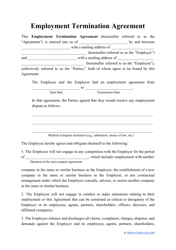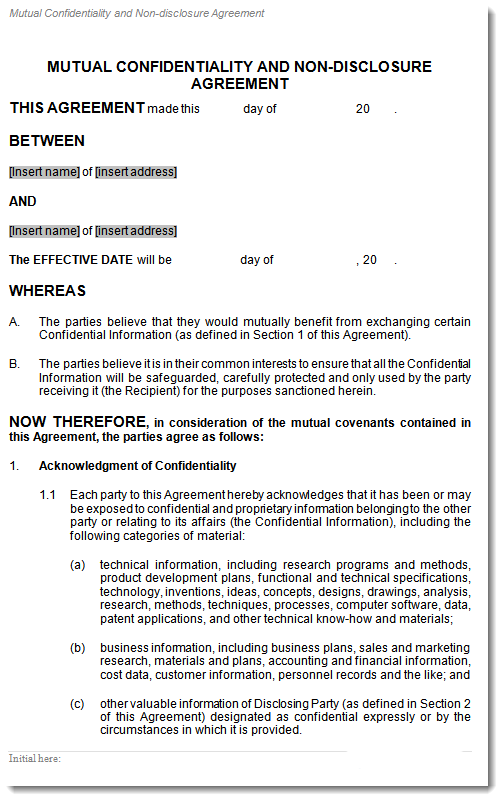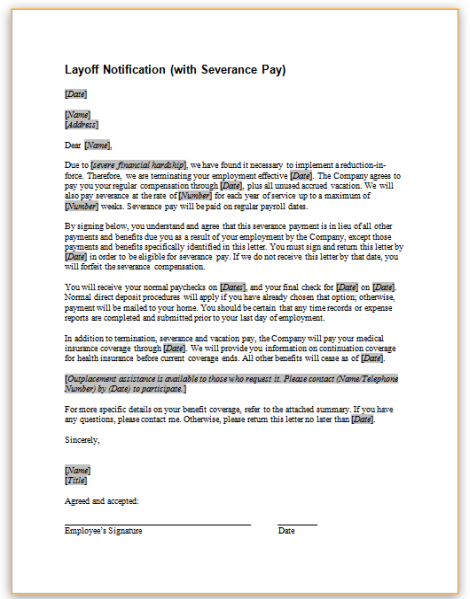

In addition to release of claims, an executive may want to negotiate the terms of a restrictive covenant, if applicable. Severance benefits are typically viewed as an exchange for release of claims against the company. Because of this, it is essential to evaluate any potential claims against the employer before signing the agreement. Upon signing a severance agreement, an employee’s right to a legal claim typically disintegrates. In addition to a confidentiality clause, an employer will insist on a release of any and all legal claims the executive may have against the employer, or any of its agents or representatives. Confidentiality clauses ultimately function to make it more difficult for other executives to learn of enhanced severance terms for certain executives. Moreover, the executive may ask for an exception to the confidentiality clause as to immediate family members.
#SEVERANCE AGREEMENT ILLINOIS TEMPLATE PROFESSIONAL#
For example, an executive may wish to inform his or her professional advisors, such as an attorney or financial planner, of the terms of the agreement. While there is little room to negotiate on this issue, an executive may ask for some exceptions to the clause. Further, an executive who has received any deviation from a standard severance package will likely be asked to keep the terms of the agreement confidential. This is often the case for executive severance agreements, when an employer has agreed to offer extended benefits to one executive, but not another. Employers will likely insist on a confidentiality clause within the severance agreement to prevent other employees from becoming aware of the details of a specific package. In such a case, it may be easier to negotiate a better deal because there is no standardized severance package. On the other hand, a company may opt to provide executive severance through individual employment contracts, or individual severance agreements. During a negotiation, an executive may want to extend the continuation pay period until he or she secures a new job.Īn employer may choose to create a severance policy covering executives by group. In a salary continuation scheme, an employer will continue to pay health and medical benefits on the same terms as during employment.

Generally, benefits terminate when a lump sum is paid, but continue through the salary continuation period.

This is one area an executive may want to negotiate, as some executives may rely heavily on commission or incentive pay. In general, severance pay is calculated based on the executive’s salary and does not include bonuses, incentive pay or commission pay. In terms of financial benefits, a severance agreement is either paid out in lump sum or through a salary continuation. Because many executives are financially invested in the company, they are typically in a better position to negotiate a more desirable severance package than other employees.Ī severance agreement typically covers a variety of financial and legal issues that have an influence on both the employer and executive. The initial employment agreement may include the types of benefits, obligations and restrictions an executive is subjected to following termination.

Unlike an at-will employment arrangement, an executive initial employment agreement may contain provisions outlining a severance package upon termination of employment. Executives generally have significant leverage to negotiate a severance package because of the financial and personal contributions made to the company over the period of employment. While most employers provide severance packages, these post-termination arrangements are not required under the Fair Labor Standards Act (FLSA).


 0 kommentar(er)
0 kommentar(er)
